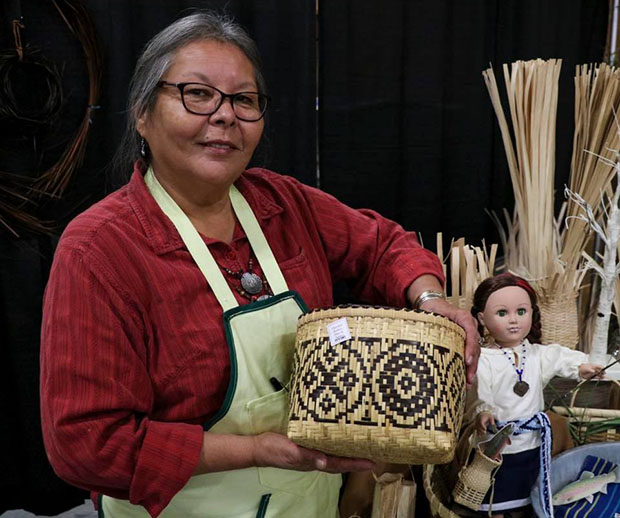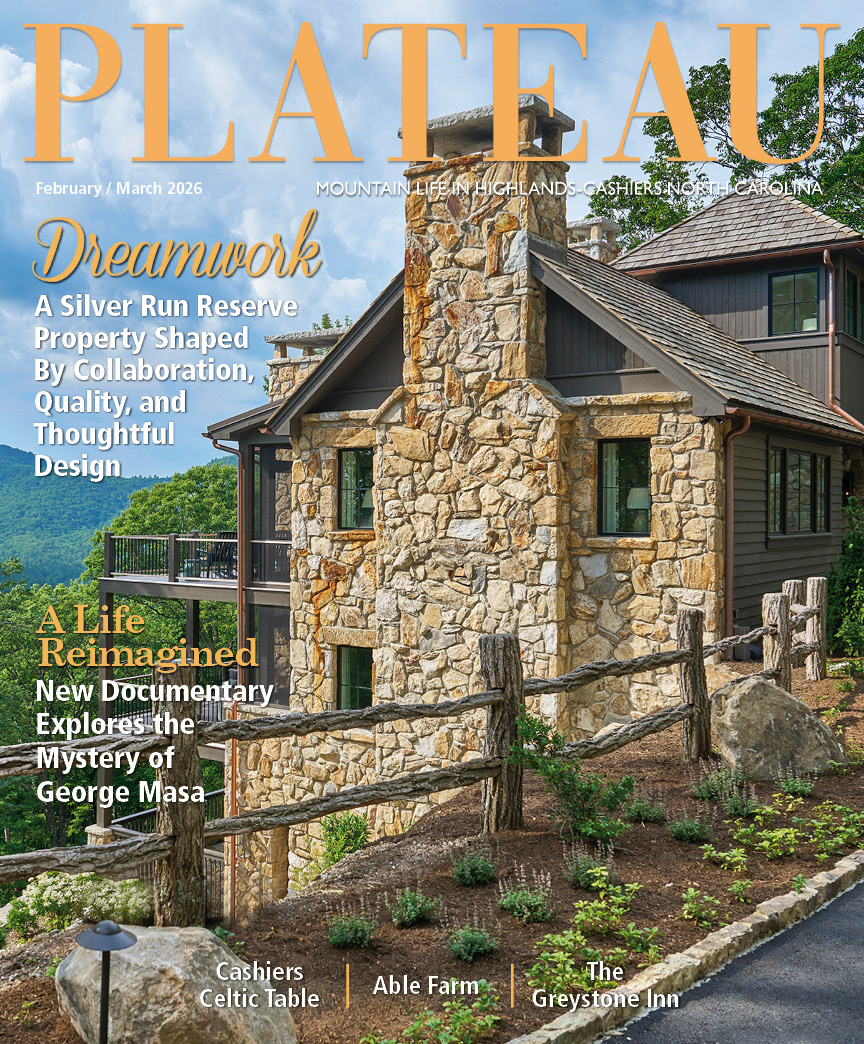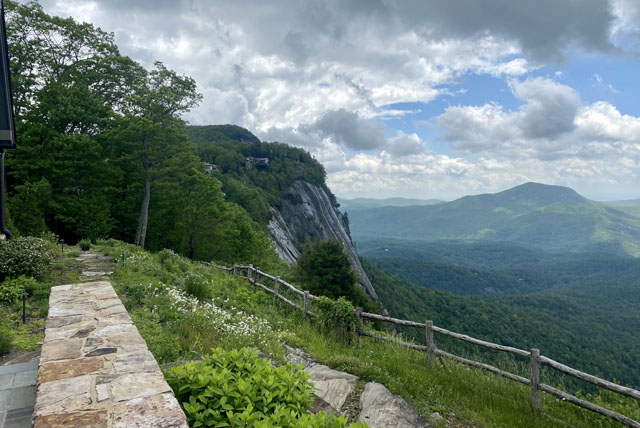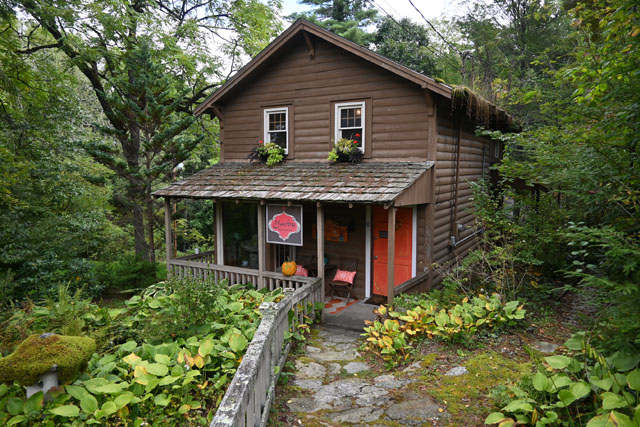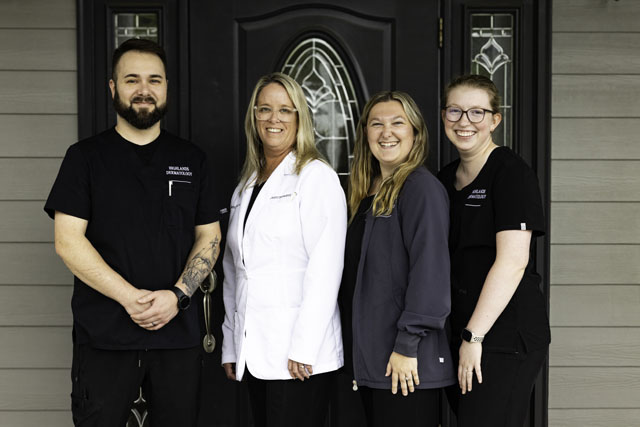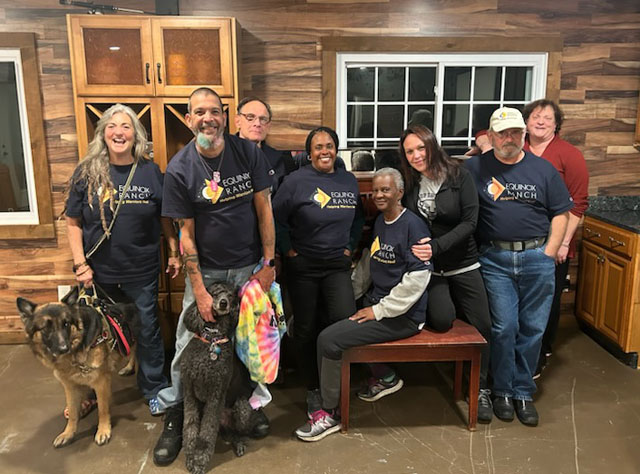The Doctor Is In
09 Jun 2021
Expanding primary health care on the Highlands-Cashiers Plateau
By Kat Ford

Established on February 1, 2019, to improve the health and wellbeing of Highlands, Cashiers and surrounding communities, the Highlands Cashiers Health Foundation (HCHF) was birthed from its predecessor foundation, the Highlands-Cashiers Hospital Foundation, when the nonprofit Highlands-Cashiers Hospital and its parent organization, Mission Health, sold to Hospital Corporation of America (HCA). Charged with advancing the purpose of encouraging vibrant, healthy living on and around the plateau, HCHF awarded over 3.5 million dollars in grants in 2019-2020, ranging from efforts to support medical examinations for child abuse victims to providing health services for low-income and uninsured patients, expanding capacity for search and rescue operations to providing onsite school nurses, encouraging the development of young minds through art, literacy and programming to battling food insecurity. Indeed, the path to healthy living and wellness is an all-encompassing journey.
Then came the first few months of 2020, and a pandemic shook not just our local but global community. Health took on a whole new meaning, and the HCHF sprang into action, purchasing and delivering over 200 hand sanitizing stations in Cashiers, Highlands, Franklin and Sylva; partnering with the United Way to deliver over 5,000 face coverings to area nonprofits, protecting staff and volunteers; funding an unprecedented initiative for weekly COVID testing in plateau schools to maximize the safety of in-school learning and minimize the risk of community spread, and sponsoring both local COVID testing and vaccine clinics.
While headlines were made in grantmaking and community protecting, another initiative took place behind the scenes over the last two years.
A Diagnostic Approach
A medical diagnosis is a form of deduction. A doctor considers a patient's health history, examines signs and symptoms and test results that could indicate the characteristics of a known disease. As an organization with a health-focused mission, led by a board of directors composed of many with a background in health and wellness, it should come as no surprise that HCHF would approach their task of community wellbeing in the same fashion. From the start, they conducted a series of listening sessions, interviewing 90 organizations, to identify the most prevalent deterrents of good health. Many of these deterrents encompassed a root cause that we have addressed numerous times in Plateau Magazine, a poverty rate in Macon and Jackson counties that falls just under 20 percent. Working wages that don't offset high costs of living and seasonal flux, food insecurity, lack of housing which requires long and expensive drives to and from work, all factors in creating an un- or under-insured local population. After months of inquiry, HCHF identified access to affordable healthcare as its first diagnosis and most immediate priority in addressing the top three causes of systemic problems within the community.
Rural Restrictions
Serving a fluctuating population makes it hard for any business owner to build stability and longevity. This can be even more challenging for a primary care physician serving both a largely seasonal population and a significantly uninsured year-round working population. Physicians want to develop long-term relationships with their patients; this requires time and the ability to ride out the financial strain of a new business in slow seasons.
The shortage of health care professionals in rural areas is a national problem. In addition to monetary constraints, issues including lack of peers and access to opportunities for continuing education are all reasons why, when considering western North Carolina, a physician might set their sights on Asheville instead of the plateau. Since 2010, eight of ten primary care physicians have left the Highlands-Cashiers area. HCHF noted that "In 2021, the frightening reality was that two full-time primary care doctors were serving a population that ranges from 8,000 in the winter to more than 40,000 in the summer." Armed with a diagnosis, HCHF sought a long-term, well-researched solution. They found one in Blue Ridge Health.
Blue Ridge Community Health Services (BRCHS), a 501 (c) 3 nonprofit, provides family and pediatric medical services to patients across western North Carolina. After an extensive search for solutions with health professionals and organizations, HCHF committed to partner with Blue Ridge Health by providing funding support for the Blue Ridge Health-Highlands Cashiers project to include a comprehensive family medicine center operated by BRCHS at the Jane Woodruff Clinic on the Highlands-Cashiers Hospital campus.
Two new physicians, Ann Davis, M.D., and Kristy Fincher, D.O., will begin seeing patients in late June. These two primary care physicians and support staff will offer a comprehensive continuum of health care services for all ages from infants to seniors, including healthy lifestyles and nutrition programs, screenings, treatments for acute illnesses and minor injuries, physical exams, women's services, minor office procedures and chronic disease management, all under one roof. Insurance, Medicare and Medicaid will be accepted, and a sliding-fee scale will be available for eligible patients ensuring that all people are served regardless of ability to pay.
Robin Tindall, the CEO and executive director of HCHF, stresses that the funding support partnership is aimed at expanding healthcare access for plateau residents. "At a time when fewer than three percent of North Carolina's medical school graduates choose to practice in rural areas, the plateau has benefitted from the care provided by Dr. Patti Wheeler and Dr. Scott Baker. The Foundation and Blue Ridge Health are excited to expand this critically needed access to healthcare on the plateau by serving everyone including our year-round families and retirees, seasonal residents and visitors.”
Diagnostic to Preventative
The Area Health Education Centers program was developed by Congress in 1971 to recruit, train and retain a health professions workforce committed to medically underserved populations. Mountain Area Health Education Center (MAHEC) was established in 1974 to improve training and retention of healthcare professionals across western North Carolina. Blue Ridge Community Health Services partners with MAHEC as Teaching Health Centers for medical residents. In addition to providing expanded access to affordable primary care, Blue Ridge Health-Highlands Cashiers will utilize their partnership with MAHEC's UNC Health Sciences residency and fellowship programs to help address the region's rural healthcare provider shortage. Certain empathy and communication skills are required in serving a rural area. There is no better way to understand how long commutes, lack of Wi-Fi and cell coverage, or natural encumbrances like downed trees and heavy rainfall could affect a patient than living in those same rural conditions. With an ultimate goal of training and recruiting students to stay in the area, a built-in learning environment for family practice residents and aspiring health professionals will be accomplished by establishing a MAHEC Rural Teaching Practice at Blue Ridge Health - Highlands Cashiers. This ongoing stream of health professionals in training will pave the road to a continuous supply of health care providers on and around the plateau. In addition to medical residents, an area health education center will also allow local middle and high school students exposure to possible health care vocations.
Preventative care is holistic, and HCHF has its eye on the whole spectrum of unmet needs of the community, with the intent to create new solutions that benefit all who live, work and visit the plateau. While primary care is an immediate priority, it is not the only long-term need. Many residents are over age 65, meaning that eventually, there will need to be conversations about specialized medical facilities. Rural conditions also mean intense search and rescue operations and infrastructure that will allow rescue professionals to get to mountain homes quickly in an emergency. Wellness includes physical, emotional, social and intellectual health. Future initiatives will require much research and thought for creative solutions.
The Highlands Cashiers Health Foundation made a substantial commitment toward their funding partnership with Blue Ridge Health. With an expectation that Blue Ridge Health - Highlands Cashiers sustainability will come if given enough time, this innovative, long-term solution to a long-standing problem would not be possible without a significant Leap of Faith Commitment from the Foundation. For HCHF to keep an eye on the future health of the Highlands-Cashiers Plateau, including the many endeavors required in a complete conversation about innovative and needle-moving wellness strategies, they are asking for donor support. Every fundraising dollar given towards Blue Ridge Health - Highlands Cashiers goes directly to the project; no HCHF administrative costs are included.
With a new health education center full of minds keen on learning to care for rural residents, the Highlands Cashiers Health Foundation just might have created the winning equation they need to turn diagnostic problem solving into a legacy of preventative plateau wellness.


